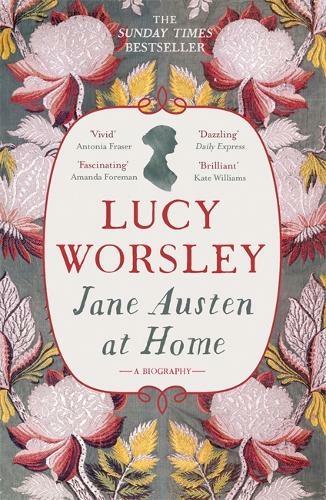

Yet beyond irony or the insight with which she portrayed universal experiences like love, grief, and regret, her life and fiction captured deep social injustices that remain unresolved today – the inequitable social pressure on women to be caretakers and homemakers ongoing barriers to class mobility the tendency of those born with a great deal of good fortune to attribute it to personal merit, while disparaging the less fortunate as undeserving the economic barriers too many of us face in finding a home. A recent article in The New York Times literally graphed the number of times Austen used physical, abstract, or emotional language in contrast to her contemporaries, concluding that irony is what accounts for her novels' ongoing appeal in modern times. As much as her life fed those novels, her life has proved peculiarly relatable to modern readers.

How can there be more to say about Jane Austen, who completed just six novels over 200 years ago and whose letters were mostly destroyed? What’s singular and remarkable about Austen is that the more time passes, the more timely her novels become. That is an awesome responsibility and a revolutionary opportunity. Even when the world is unkind, we can be unmoved in our determination to love, to build, to seek credible hope.

Never to excuse or ignore cruelty or crime, but to recognize that how we view the world shapes the world. What is the media’s responsibility?Author and anti-apartheid activist Alan Paton once said of the Monitor, “It gives no shrift to any belief in the irredeemable wickedness of man, nor in the futility of human endeavor.”In addition to reporting acts of kindness, perhaps a next step is to see the world through a lens of kindness. But can this elevation only happen with stories of kindness? Must the rest of the news abandon us to despair?The world is asking us to consider that question deeply. She defined kindness and heroism as “moral beauty,” which “triggers ‘elevation’ – a positive and uplifting feeling” that “acts as an emotional reset button, replacing feelings of cynicism with hope, love and optimism.”The study suggested this happens when one watches a news story about kindness after watching ones about bombings, cruelty, and violence. They support “the belief that the world and people in it are good.” And they provide “relief to the pain we experience when we see others suffering.”It was her fourth point that stuck with me. A week ago, a British researcher published an article titled “Stories of kindness may counteract the negative effects of looking at bad news.” As you might imagine, I was intrigued.Kathryn Buchanan of the University of Essex shared four main takeaways from her research: Stories of kindness remind us of our shared values.


 0 kommentar(er)
0 kommentar(er)
